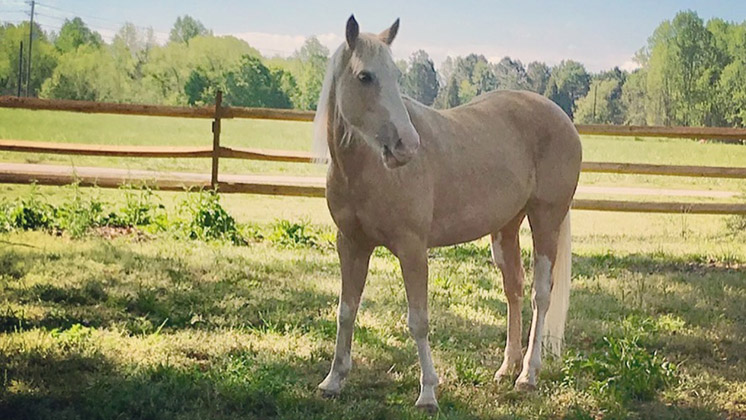How Equine Communication Transforms Trauma Healing

When it comes to treating trauma, traditional therapy methods may not work for everyone. That's why equine-assisted mental health (EAMH) has gained popularity as a unique and effective approach for people dealing with conditions like PTSD, anxiety, and depression. But what makes this type of therapy so impactful? The answer lies in the horses themselves and their remarkable ability to communicate nonverbally.
What is Equine-Assisted Mental Health?
EAMH involves interactions between clients, horses, and licensed mental-health practitioners. Unlike other therapy forms, sessions can take place in natural settings like pastures or arenas, with or without riding. Horses, known for their acute sensitivity as prey animals, respond instinctively to human emotions, creating opportunities for clients to better understand their feelings and behaviors.
The Role of Communication in Therapy
Horses are experts in nonverbal communication, using body language, expressions, and movement to convey messages. This study explored how practitioners harness these equine signals to guide therapy:
- Equine Congruence: Horses can detect when a person’s outward calmness hides inner turmoil. If a client says they’re fine but the horse behaves anxiously, practitioners see this as a cue to dig deeper into what the client may be feeling.
- Unconditional Positive Regard: Horses create a safe, non-judgmental space. Their sheer presence and touch can soothe clients and encourage them to confront difficult emotions, often more effectively than human interaction alone.
- Feedback for Reflection: When horses show resistance or engage in unusual behavior, it prompts clients to reflect on their own actions and emotions. For instance, if a horse refuses to move, it can symbolize a client’s emotional “stuckness,” pushing them to find new approaches in therapy and life.
Moments of Transformation
The paper shares moving examples, like a client processing anger who saw horses mirror her emotion through aggressive behavior, or a young girl discovering her patience as she waited for a horse to respond. These experiences illustrate the profound, sometimes surprising, feedback horses provide.
Beyond Magic: The Science Behind It
While some refer to the “magic of horses,” this research underscores that it's more than magic—it’s communication at work. Horses’ ability to reflect human emotion without judgment helps clients develop trust, gain insight, and achieve breakthroughs in their healing journey.
Implications for the Future
This study not only highlights the benefits of EAMH for clients but also emphasizes the importance of safeguarding horse welfare. Practitioners must remain aware of the emotional labor horses perform and ensure they have time to rest and engage in natural behaviors.
Conclusion
Equine-assisted mental health sessions offers powerful, nature-integrated paths to healing trauma. With their unparalleled sensitivity, horses bridge the gap between emotion and expression, enabling deep, life-changing therapy experiences.
Read the Research Paper
This article was based on the research of Dr. Leanne Nieforth and the HAPI lab. Read the research:
Suggested Articles

When Therapy Horses Pass On: How Practitioners Cope and Grow
Grief and resilience in equine-assisted services are explored through a study on how practitioners cope with the death of therapy horses, offering insights and strategies for healing and support.
Read more
Paws at Work: Can Pets Make the Office a Happier Place?
A systematic review of 20 studies explores how pets in the workplace can reduce stress, support mental wellbeing, and boost social connection and engagement—while also highlighting challenges like allergies, distractions, and the need for clear, animal-friendly guidelines.
Read more
Can Animals Help Military Families Thrive?
Explore how animal-assisted interventions, including equine-assisted services and service dogs, support military families by improving emotional connections, resilience, and communication amidst unique challenges.
Read more
